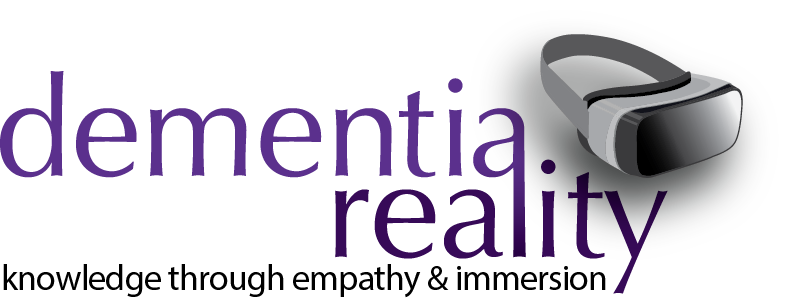Each module contains three scenarios:
First Scenario
ONE:
Shadowing a caregiver who is doing a poor job of caring for a client with dementia. How the caregiver’s performance directly impacts the client.
Label
TWO:
Caregiver re-enters client’s room and repeats task, but in an intentional and supportive way. See how this enables the caregiver to do a better job, as well as the impact on client receiving the care.
THREE:
Empathy: Viewer embodies the client, seeing everything through their eyes. Experience how it feels to be treated poorly. Also, depending upon the module, feel what it’s like to struggle with awkwardness, confusion, garbled speech, hallucinations, delusions, and other visual and auditory distortions.
Trainees are eligible to earn continuing education units (CEUs) after completion of the course.

Modules
Each module shows how subtle variations in approach and communication can make a huge difference. For example, brushing teeth, dressing, showering, eating, taking medications, activities, and other common situations.
It might be how to gently redirect a gentleman who insists on wearing yesterday’s clothing. A woman whose field of vision has narrowed and who needs the caregiver to stand directly in front of her. How the dining staff can connect to ensure a resident is eating properly.
